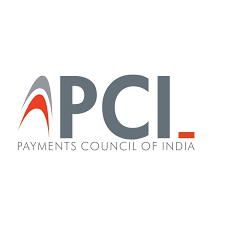 Back
Back
PCI welcomes RBI framework for digital payments in offline mode
By Leandra Monteiro
 The Payments Council of India (PCI), the representative body of payment system participants in India, welcomed the RBI framework for facilitating small value digital payments in offline mode. The move will benefit the adoption of digital transactions in rural areas or where internet connectivity is erratic or unpredictable, and further provide impetus to offline digital payments.
The Payments Council of India (PCI), the representative body of payment system participants in India, welcomed the RBI framework for facilitating small value digital payments in offline mode. The move will benefit the adoption of digital transactions in rural areas or where internet connectivity is erratic or unpredictable, and further provide impetus to offline digital payments.
PCI would like to thank the Reserve Bank of India for its progressive regulations. The framework for offline payments is the need of the hour and will go a long way in bringing the last mile on to the digital payments’ pathway.
Vishwas Patel, PCI Chairman and Director, Infibeam Avenues said, “These progressive moves by RBI will go a long way in further augmenting the payments ecosystem and enable further growth of digital payments across the country especially in rural areas. PCI will continue to work closely with the RBI to advocate and further come up with solutions that facilitate ease of use in day-to-day transactions.”
T R Ramachandran, Group Country Manager, India and South Asia, Visa and Executive Council Member, PCI said, “We are delighted to see the framework for offline digital payments announced by RBI. By making it possible for users in low or no connectivity areas to make payments digitally, this opens doors for deeper financial inclusion in the country. Visa has recently piloted a Proof of Concept (POC) of how offline payments can happen through debit cards, which constitute a majority of cards issued today. We are excited by the opportunities that this framework provides for taking digital payments to the underserved.”
The framework allows authorized Payment System Operators (PSOs) and Payment System Participants (PSPs) to accept offline payment made using cards, wallets, and mobile devices among others. The upper limit per transaction has been fixed at INR 200 while the overall limit for offline transactions through a particular channel has been set at INR 2,000 at any point in time. The transactions will be proximity-based, i.e., face-to-face transactions will not require additional factor authentication, as per the framework. While the issuer will have to send transaction alerts to the users, as soon as transaction details are received, there is no compulsion to send alerts for each transaction, but the details could be adequately conveyed.
IBSi FinTech Journal

- Most trusted FinTech journal since 1991
- Digital monthly issue
- 60+ pages of research, analysis, interviews, opinions, and rankings
- Global coverage
Other Related News
Related Reports

Sales League Table Report 2025
Know More
Global Digital Banking Vendor & Landscape Report Q2 2025
Know More
NextGen WealthTech: The Trends To Shape The Future Q4 2023
Know More
Intelligent Document Processing in Financial Services Q2 2025
Know More


